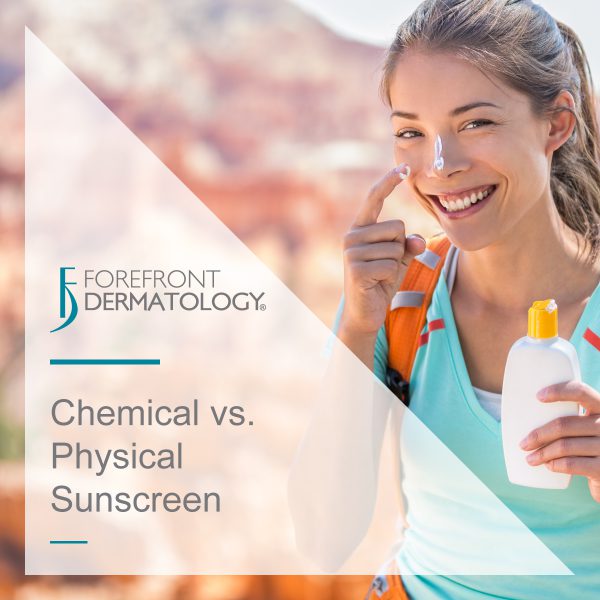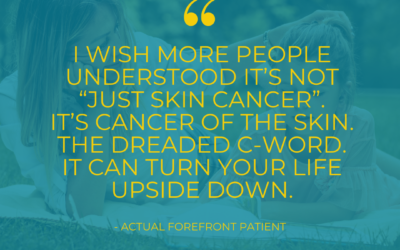
A lot of people are unaware that there are two types of sunscreen: chemical and physical.
What’s the difference?
Chemical sunscreens contain organic compounds, such as oxybenzone, octinoxate, octisalate and avobenzone. According to Dr. August A. Natalie, board-certified dermatologist with Forefront Dermatology, “Chemical sunscreens are absorbers of UV rays as they attempt to enter the skin. Physical sunscreens contain active mineral ingredients, such as titanium dioxide or zinc oxide, which work by sitting on top of the skin to deflect damaging UV rays away from the skin.”
“Both chemical and physical sunscreens have their own set of pros and cons,” added Dr. Natalie:
Chemical Sunscreen
Pros:
- Less is needed to protect the skin because there is no risk of spaces between the sunscreen molecules after application
- Tends to be thinner and spreads more easily on the skin.
Cons:
- Requires about 20 minutes after application before it starts to work
- Increased chance of irritation and stinging due to the multiple ingredients combined in order to achieve broad spectrum UVA and UVB protection
- The higher the SPF, the higher the risk of irritation for sensitive skin types
- The protection it offers gets used up more quickly when in direct UV light, so re-application must be more frequent.
- May clog pores for oily skin types
Physical Sunscreen
Pros:
- Offers protection against both UVA and UVB rays and is naturally broad-spectrum
- Protects from the sun as soon as it’s applied, no wait needed
- Lasts longer when in direct UV light, but not when wet or sweating
- Less likely to cause a stinging irritation on the skin
- Less likely to be pore-clogging, making it ideal for acne-prone skin
- Longer shelf life
Cons:
- Can rub off, sweat off and rinse off easily, meaning more frequent re-application when outdoors as needed
- May leave a white film on the skin, making some formulas incompatible for medium to dark skin tones
- Can be less protective if not applied and re-applied generously and accurately since UV light can get between the sunscreen molecules and get into the skin
Regardless of which sunscreen you choose it is important to make it part of your daily skin care routine. Regular application of sunscreen can reduce your chances of skin cancer while also prolonging the development of wrinkles and sun spots.
Skin Struggles?
At Forefront Dermatology, we know that life is all about the moments when you don’t need us. That’s why we’re here for all the moments when you do. We offer comprehensive and compassionate care for all skin conditions and create customized treatment plans for all stages and ages – even the tiniest of patients! Find a location near you today.





